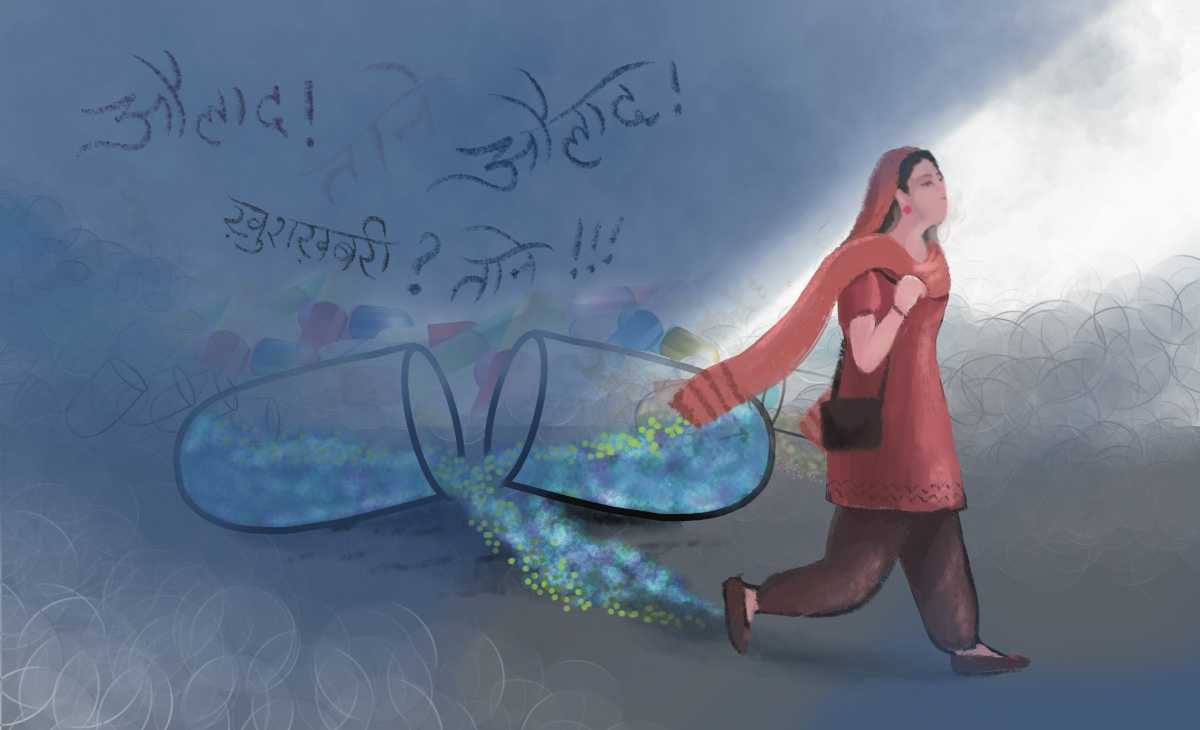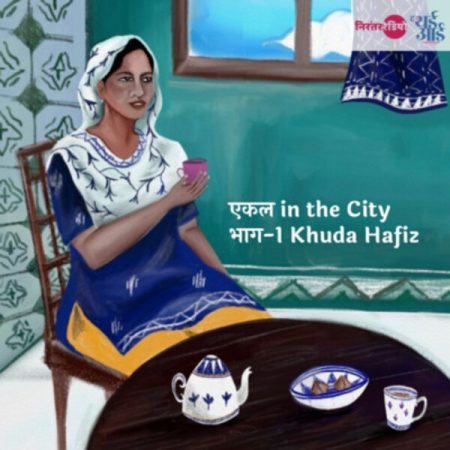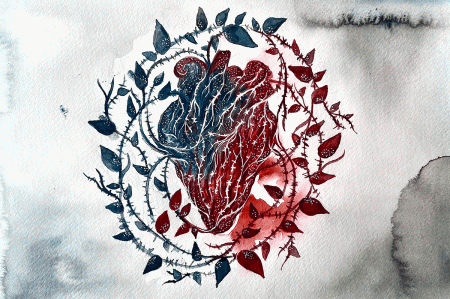The Third Eye worked with 12 caseworkers in rural and small town Uttar Pradesh, and through a process that included immersive writing, theatre-based pedagogies and year long workshops, the caseworkers became the lexicographers of The Caseworkers’ Dictionary of Violence.
Usually, a compromise is done between two people, as we have often seen. A compromise is done to resolve a fight between a husband and wife, or to resolve other kinds of conflict. But, in life too, we have to go through many compromises. The compromise that I have made is a little different from all of these. The reason for my compromise is that despite 11 years of marriage, I do not have a child. This has been the reason I have to hear all kinds of things from people every now and then.
After three years of marriage, I had started my medical treatment for infertility. I persisted with the treatment for six years, but it didn’t bear any results. Then, one day, I stopped all treatments, and left it to God. Whatever He decides for me will be for the best, I thought. But wherever my neighbours, relatives and people within the family would bump into me — be it a market or a function — they would start each and every conversation by saying: “What happened Shabnam, don’t you have any good news yet? Where are you getting yourself treated? There’s a woman I know who went to a doctor in Aligunj, he is very good, now she has a four month old baby, many women have been blessed from there. My advice is that you go there and get yourself checked at least once…My reply usually is – “Give me this doctor’s address. I will take out time to go and see him.” But they just continue, “Yes, child, this is very important to do. Even if you could have just one child, he will be your support in the future. After all, your own progeny is truly your own…”
This is just one example; I had to constantly hear this all the time. Many people said many kinds of things, which hurt me. Finally, I made a compromise with myself: I will not undergo anymore fertility treatments. I will not take any medicines. Whoever talks to me regarding this, I will play along with them, but I will not take any more medicines.
Compromise is very hard when you have to do it with yourself. Because in this compromise the struggle is with your own self, and you have to do it alone. You have to answer a thousand questions posed by your very self.
Many questions stand before you: I have arrived at this decision, but will I be able to bear its consequences? Or, will I be able to keep myself happy with this compromise?
But in a way, this is also a decision that I have made all by myself, for myself. Having made this decision, I live quite peacefully now. I am not so tense anymore; I’m not living by a constant clock. I do not worry about whether the medicines are working, or if I need to see yet another doctor. Sometimes, those medicines would even harm my body. Now, I am free of all that. I had to make this decision. For how long could I stay tangled in that question: “Will I get my period?” The monthly anxiety was killing.
My mother really helped me to arrive at this decision. She explained to me, “Child, don’t think so much. There are many women like you in the world who don’t have children. But they stay happy. Look at those women, and try to keep yourself happy.” I also drew strength from my office, where I meet different kinds of women. They, too, give me courage. I have an appi (sister) in my office. She explained a lot of things to me. I understood what she was trying to tell me.
Now, I have a job in an organisation that works with girls and women empowerment. I find a lot of solace in this job. I have come so far from things that would earlier hurt me.
Translated from the Hindi by Ruchika Negi





